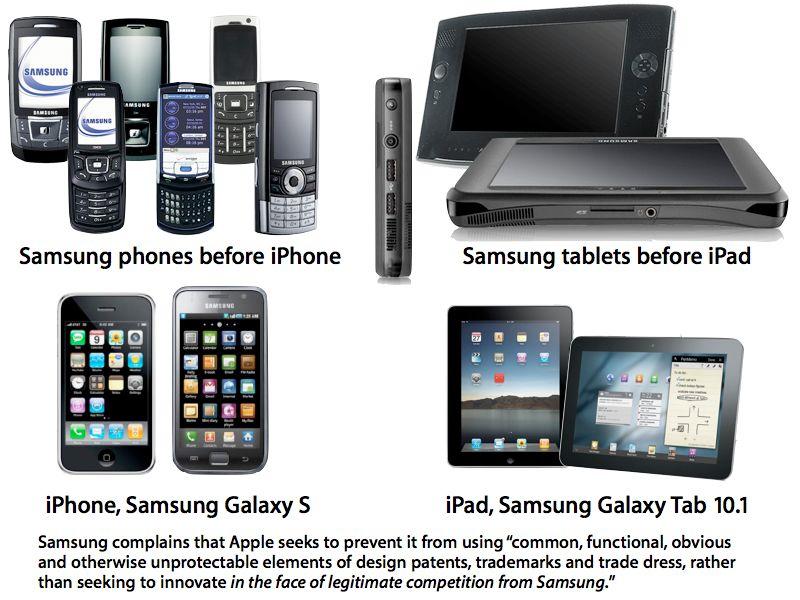Apple accuses Motorola, Samsung of monopolizing markets with patents
F/RAND encumbered patent claims
Apple has a series of technical and design implementation patents that it is wielding in an attempt to stop competitors from copying its products. However, many of its patent cases have involved counterclaims based on patents that are associated with a particular industry standard, such as WiFi or 3G mobile networking.
Companies that own patents which are elemental to such a standard commit their intellectual property to "fair, reasonable and non-discriminatory" licensing, which essentially means that while everyone has to pay royalties to the patent holder to use the technology, the patent holder has agreed to provide licensing terms to anyone on "fair and reasonable" terms.
Apple itself participates as a minority patent holder in the MPEG LA video standards patent portfolio, for example, collecting a portion of the royalties paid by licensees but lacking the power to prevent competitors from licensing and implementing these standards because of its F/RAND commitments to the standards organization.
In its legal dispute with Nokia, Apple argued that many of Nokia's patents were F/RAND encumbered and therefore only required a negotiated agreement between the two companies. Apple subsequently settled with Nokia by paying F/RAND licensing terms.
As noted by FOSSPatent blogger Florian Mueller, Nokia's lawsuit against Apple separated implementation patents from F/RAND licensed standards-related patents.
Apple argues Motorola, Samsung are seeking to monopolize through standards
However, Apple's legal battles with Motorola Mobility and Samsung both argue that those companies are not making the critical distinction Nokia did, and instead are muddling together implementation patents (which competitors can work around by creating their own ways of doing the same thing) with standards patents that are required to build products that are compatible with prevailing industry standards.
When Motorola Mobility attempted to dismiss Apple's case against it, Apple argued that Motorola had engaged in anticompetitive misconduct by attempting to use its standards-related patents as weapons, something that standards-essential patents are forbidden from doing through F/RAND licensing commitments.
"By making false commitments that led to the establishment of worldwide standards incorporating its own patents and eliminating competing alternative technologies," Apple argued in a federal lawsuit, "Motorola [Mobility] has become a gatekeeper, accruing the power to harm or eliminate competition in the relevant markets if it so desires."
Most of Google's Motorola patents can't protect the Android ecosystem
Mueller reports that the judge in the case stated that "these allegations [raised by Apple] imply that Motorola engaged in anticompetitive conduct and has achieved monopoly power." The report further explained that while the judge hadn't ruled definitively that Motorola had committed antitrust violations, it did refuse to grant Motorola's motion to dismiss Apple's case on those grounds.
His report also notes that 7 of Motorola's 18 patents were previously 'declared essential to industry standards,' and therefore restricted by F/RAND commitments that limit them from being raised defensively as valid counterclaims against the infringement of Apple's implementation patents.
Mueller noted regarding Motorola Mobility's patents that "yesterday, M-CAM founder and CEO Dr. David Martin simply called them 'crap' on Bloomberg TV," adding, "And the relatively best ones MMI has — which wasn't discussed on Bloomberg — are subject to FRAND commitments."
Mueller said that claims that Motorola's Google-acquired patents are "so powerful that they can protect Android as a whole" are "completely off base," and described those making that claim as "issuing statements that blow the strategic value of MMI's patents completely out of proportion," adding that "Googlorola won't help Samsung, as I explained before."
…and Samsung needs help
Mueller noted that Apple's accusations against Samsung are worded even more harshly, stating to the court that "Samsung's serial standard-setting abuses [...] inflict continuing harm on consumers, competition, and Apple alike," and describing "Samsung's subversion of the standardization process."
Apple's lawyers state that "Samsung has unlawfully acquired monopoly power in markets for the technologies purportedly covered by patents which Samsung claims are essential to industry standards ('declared essential patents') by deceiving standards-setting organizations ('SSOs')." Further, "having obtained this ill-gotten monopoly power, Samsung has engaged in a relentless campaign of illegal and abusive assertions of its declared-essential patents to try to coerce Apple into tolerating Samsung's continuing imitation of [the iPhone and the iPad]."
Apple also asserts that the F/RAND rules of standard-setting organizations "are designed to protect the telecommunications industry from the sort of anticompetitive ambush Samsung has perpetrated here."
Mueller noted that "Apple never accused Nokia of deceiving standard-setting organizations. Basically, Apple and Nokia just had a commercial dispute over the demands that an owner of FRAND-committed patents is allowed to make, but Nokia was transparent at all stages."
The scathing tone of Apple's most recent filings against Samsung suggest a similar level of outrage and frustration expressed in previous claims that Samsung was issuing delay tactics to avoid facing its day in court until it had introduced a wide variety of new products into the US market over the next year and a half, while also suggesting to the US court that Apple had "doctored evidence" in a separate case being argued in Europe. Apple successfully argued for an expedited trial that will begin this spring.
 Daniel Eran Dilger
Daniel Eran Dilger











 Malcolm Owen
Malcolm Owen
 William Gallagher and Mike Wuerthele
William Gallagher and Mike Wuerthele
 Christine McKee
Christine McKee
 William Gallagher
William Gallagher

 Marko Zivkovic
Marko Zivkovic









